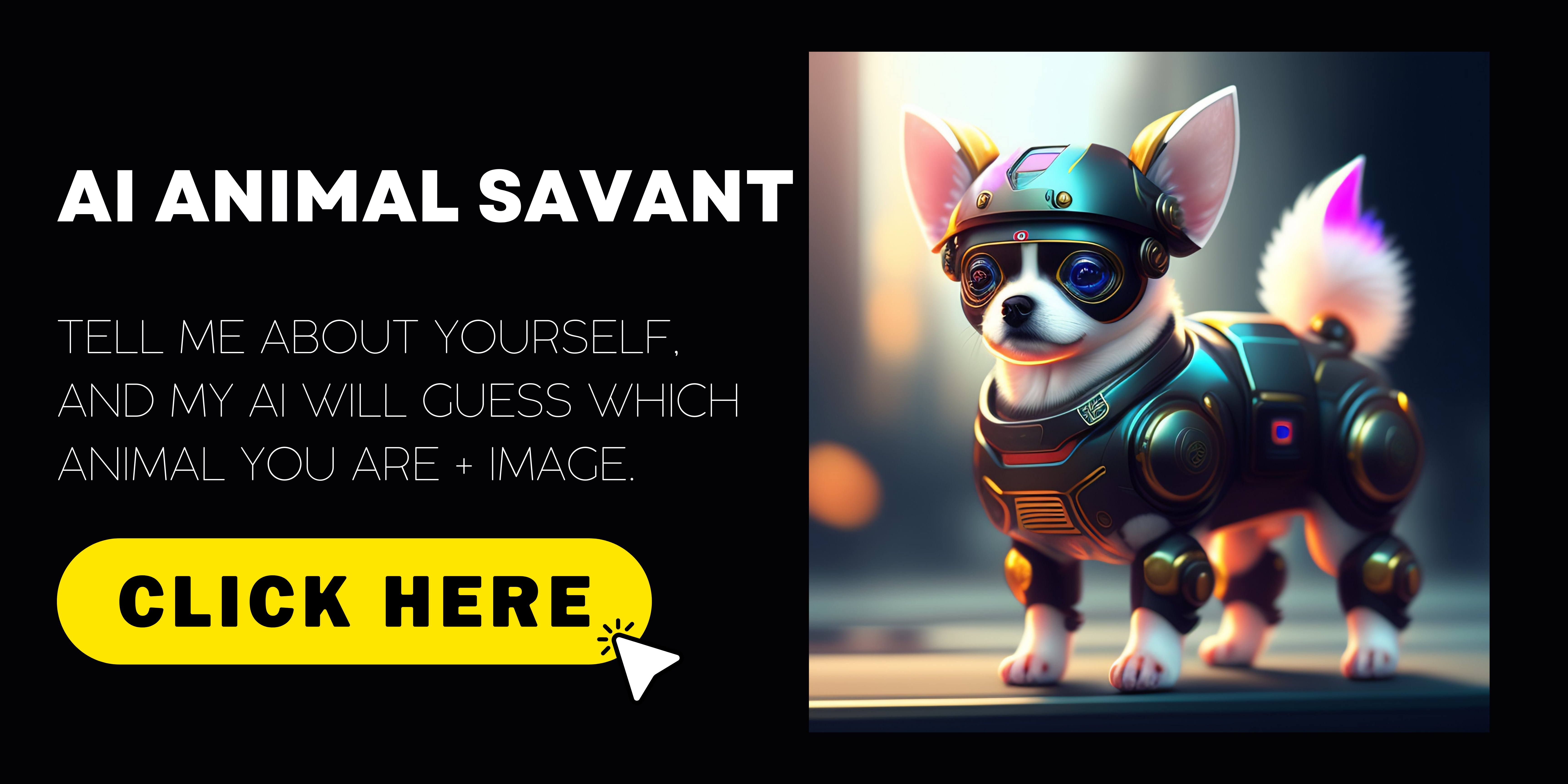You’ve just had baby congratulations! You are thrilled to welcome your baby home, and you hope that your dog will enjoy your new addition. To prepare your dog for the baby’s arrival, you spent hours training her to be a good baby sound and to play with toys. It went smoothly, with no stress or fuss. Your dog seems to love your new baby and will lick her feet, hands, and face all day. She must love her!
Although it might be cute and make for a great photo, you should not allow your dog to lick your baby. The saliva of dogs can transmit germs and bacteria to babies through their tongues. There are also some organisms that dogs cannot tolerate or fight.
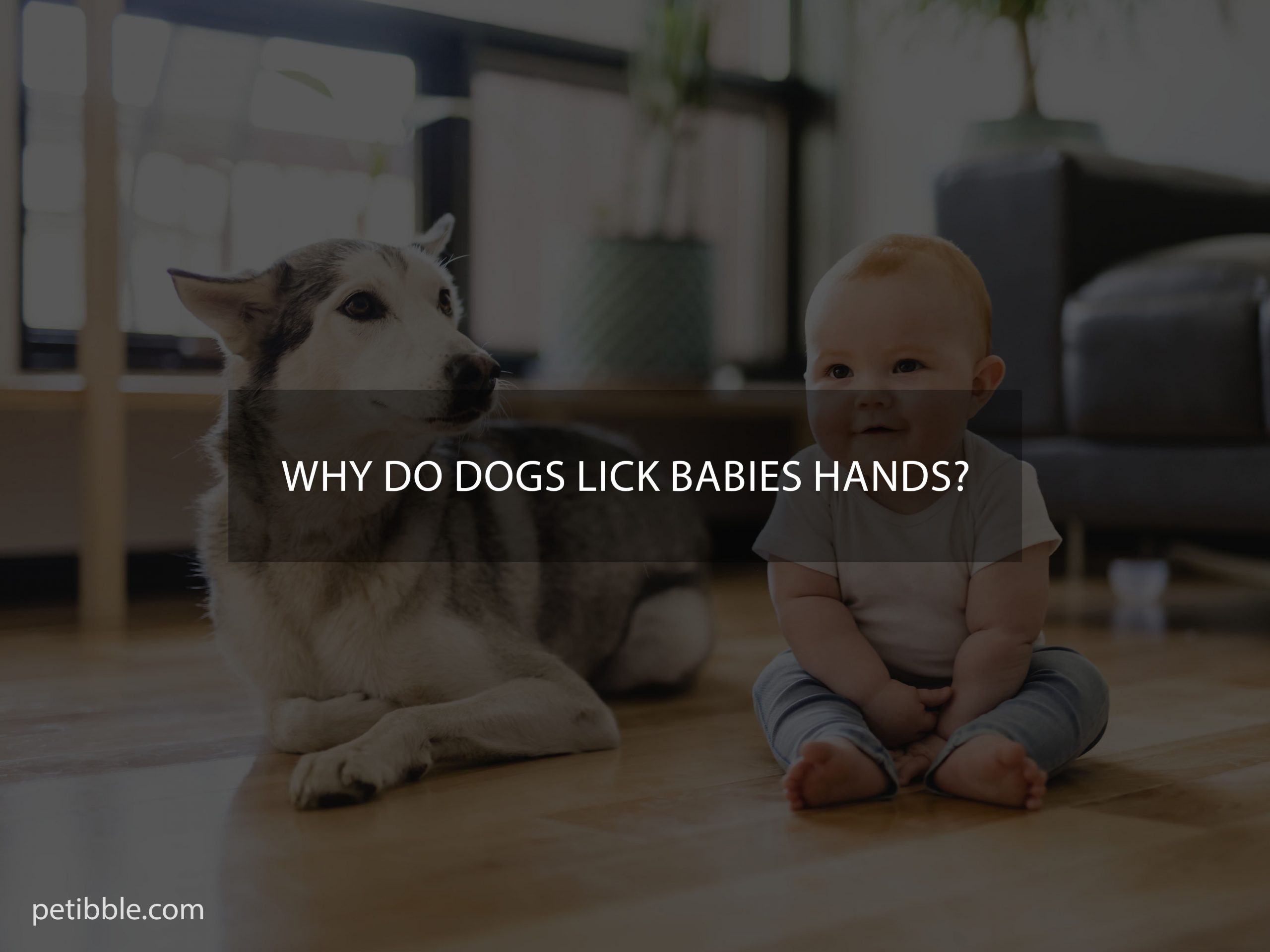
Why do dogs lick babies?
There are several reasons why dogs lick babies. The licking reasons include:
- Licking to show affection, empathy, or submission: it has been said that dogs lick babies to show love, but in most cases, it’s probably an intuitive thing, possibly even a way of leaving scent down or the opposite to be submissive.
- Babies taste interesting and new: dogs like to lick adults for the salt taste in our skin. Babies certainly won’t be as salty, but they will have new and interesting tastes, which, while similar to adults, are different enough for a dog to want to know more.
- Licking to show dominance: mothers will lick and clean their puppies to take care of them or even be the dominant pack member.
- There’s no doubt that it is dangerous to let a dog lick your baby. Not only could you be inviting a bite, but there’s also the potential for bacterial infections, as discussed below.
Dogs should not approach your baby.
Licking can signify that you are dominating or nervous and should be corrected. Licking can spread germs and other diseases that could threaten your child or the family. It would be best to teach your dog not to lick anyone in the house. Also, show your dog other ways to get affection and attention, so your dog has more positive interactions. Dogs should not approach your baby or you. Instead, they should sit quietly beside your child or engage in a behavior to gain attention from you.
You may like: why do dogs lick other dogs’ ears?
Is dog saliva harmful to babies?
Dog saliva can be potentially harmful to babies. Their mouths contain many germs and bacteria that can be passed to humans. Babies have a weaker immune system than adults, so the risk of infection via dog saliva increases. Thinking about licking behavior from a hygiene point of view. You only have to watch where a dog sniffs and licks to know that there’s going to be lots of germs and harmful bacteria around their mouth area. That harmful bacteria, including e Coli and campylobacter, are called zoonotic because they can be the source of diseases in humans and animals.
As well as bacterial infection threats, there’s also a risk that a dog licking a baby’s face could pass on parasites such as worms into the infant. Worms are very common in dogs, especially in older dogs. Almost all puppies are born with worms. If your dog does try to lick your baby, distract him with a toy or throw a treat across the floor for him to chase. Ensuring that your dog is up to date on working and flea treatments is also a good idea.
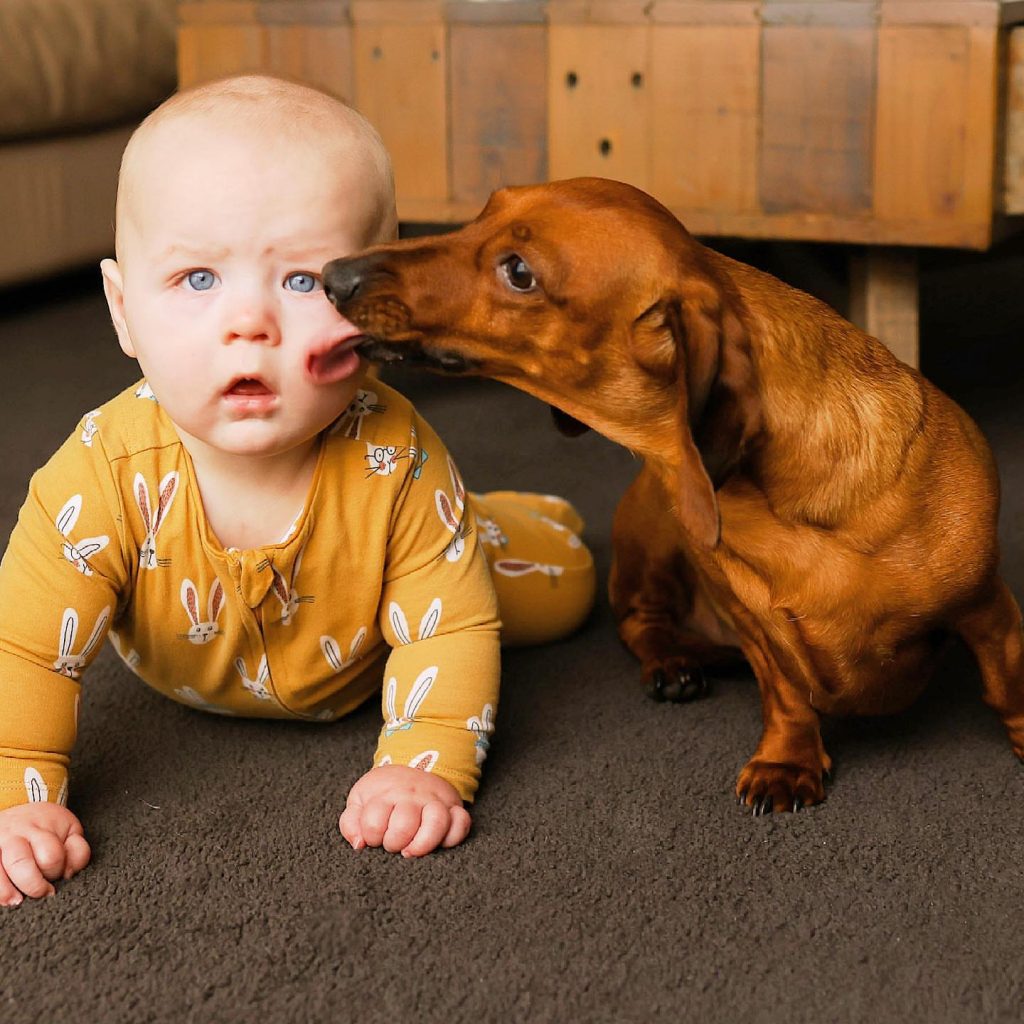
The worms and infections.
Dogs lick each other’s backs and sometimes eat feces. Dogs are at high risk of contracting intestinal parasites, including roundworms, transmitted to humans. Roundworms are the most serious. Toxocara is the parasite that causes roundworms. Toxocara infections can be treated with antibiotics. Most people don’t experience any symptoms, even adults who have been infected by small numbers of larvae (immature parasites). Although rare, the most severe cases tend to be more common in infants and young children. The larval form can spread to other tissues, causing serious health problems. Toxocara larvae have a strong affinity for the eyes, leading to vision loss. The larvae can also enter the liver or brain/central nervous systems. Symptoms include fatigue, fever, coughing, and wheezing.
Germs.
Dogs’ mouths can carry a lot of germs that can easily be transmitted to humans. This is particularly problematic for children and adults with immune suppression. Both can be at greater risk for parasites and infections from dogs. Even though it might look adorable, it is not allowed for a dog to lick a baby’s skin. Even healthy adults, I do not recommend this. If your dog loves to “kisses” other members of the family, let them do so by licking your hands and then washing your hands thoroughly. Marc I. Leavey M.D., a Baltimore-based primary care specialist, said their tongues are their toilet paper, and they clean their bodies by licking their backs.
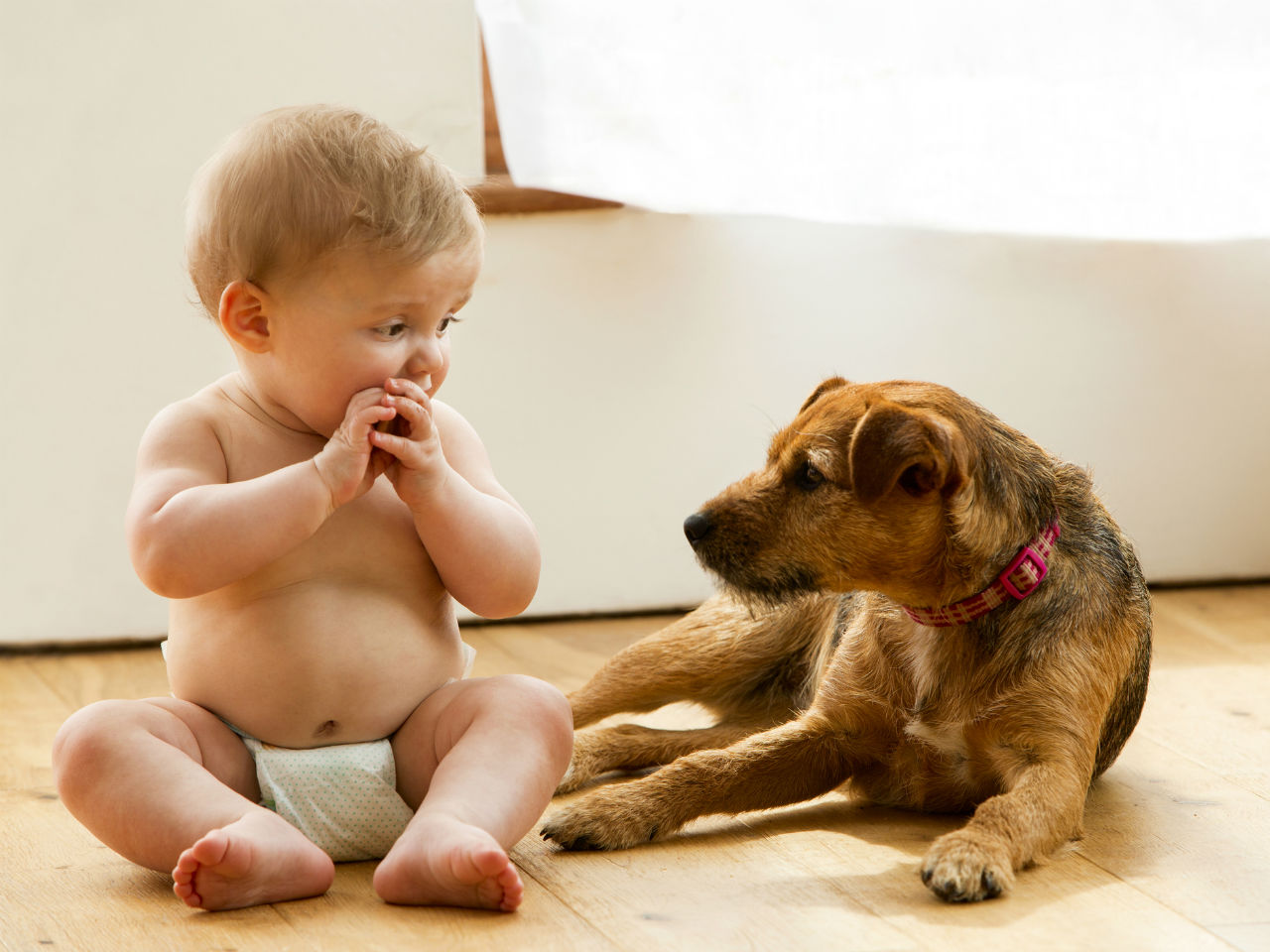
Gum and mouth infections.
Simple licks can lead to serious health problems when multiple microbes are passed from dog to person. Dr. Leavey said that studies have shown that this can cause gum and mouth infections or even systemic infections. Dogs fed raw food or find raw chicken scraps or bones on the streets may pass zoonotic bacteria like E.coli, Salmonella, or even worms to their human companions. The saliva from your pup’s mouth is more likely to get absorbed into the mucous membranes. It’s disgusting.
Can a baby get sick from a dog’s lick?
A dog’s mouth is full of bacteria, and while most of it is harmless, some of it can cause illness in humans. The biggest concern is usually with puppies, since they’re more likely to carry diseases. However, even adult dogs can pass on illnesses to babies through their saliva. It’s important to make sure that your dog is up to date on its vaccinations, and to talk to your doctor if you’re concerned about any possible risks.
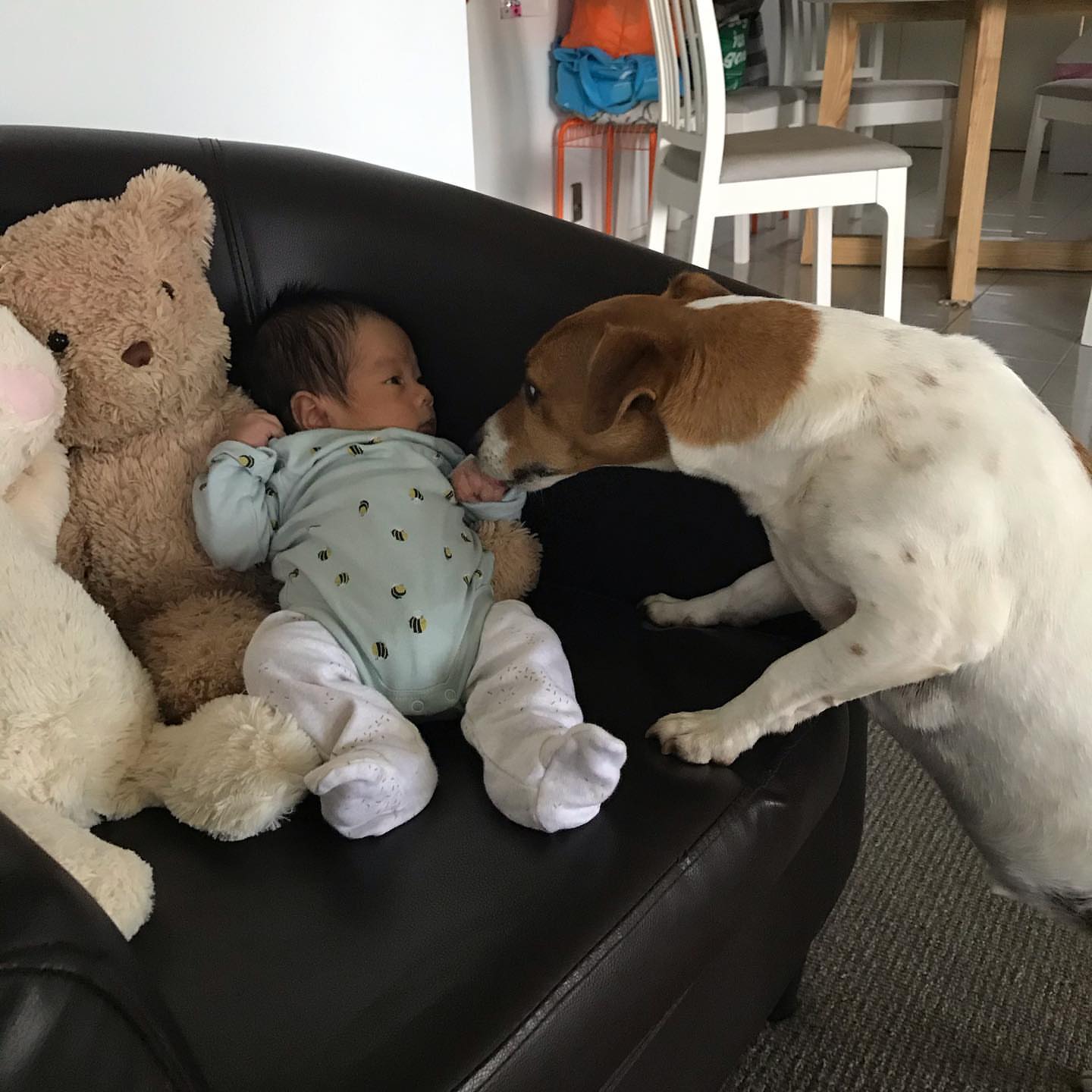
How can I stop my dog from licking my baby?
If you’re not comfortable with your dog licking your baby, there are a few things you can do to stop it. You can try training your dog with positive reinforcement, such as rewarding it when it doesn’t lick your baby. You can also try using a spray bottle to deter your dog from licking, or placing a piece of tape over the area you don’t want it to lick. Finally, you can always just keep your dog away from your baby when you’re not able to supervise.
You may like: why do dogs lick furniture?
What if my dog licks someone else’s baby?
If your dog licks someone else’s baby, there’s a chance that the baby could get sick. If you’re concerned about this, you should talk to the child’s parents and make sure that they’re aware of the risks. You may also want to consider getting your dog tested for diseases, just to be on the safe side.
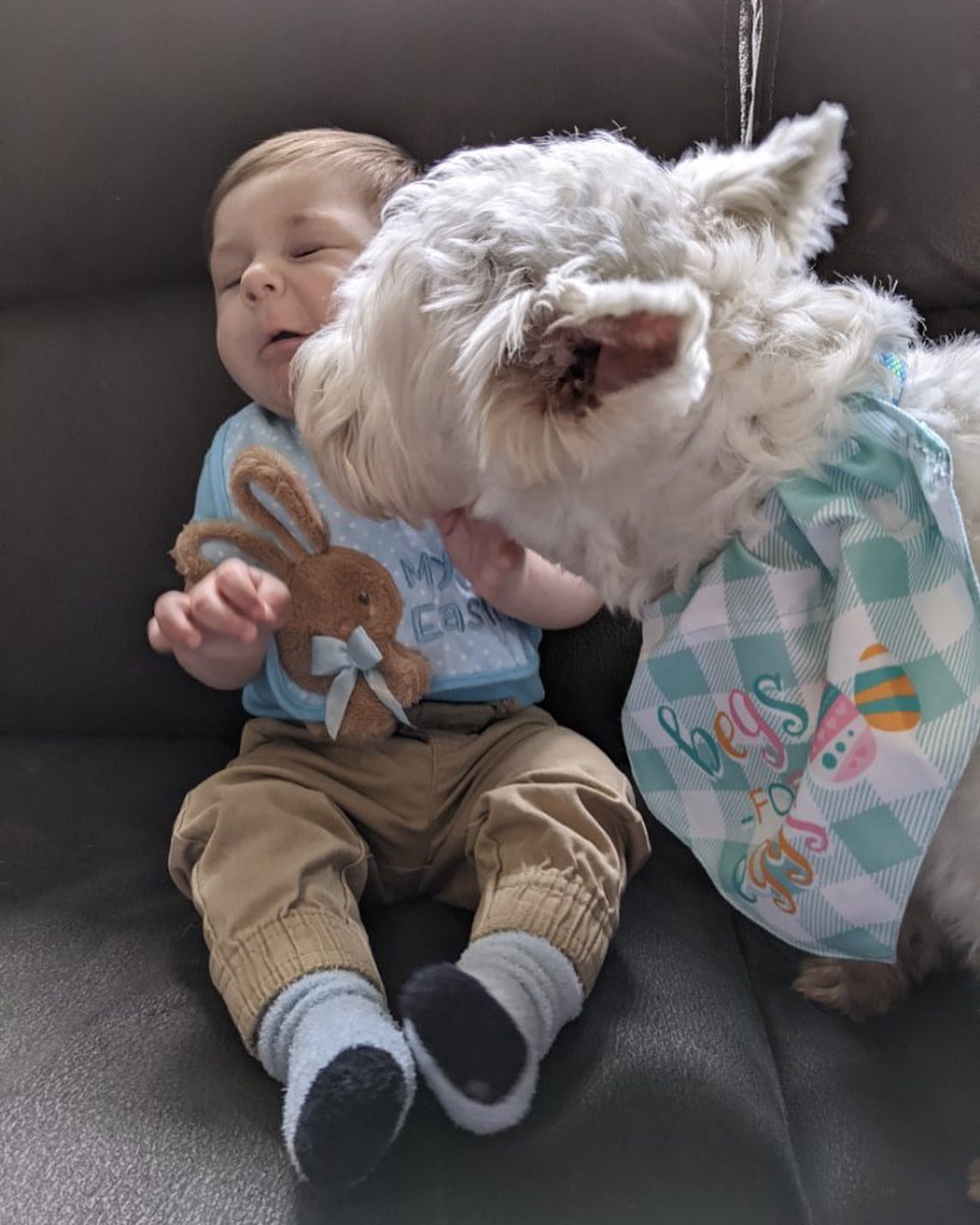
Conclusion
Dogs that lick babies’ faces to assert their dominance can cause a dangerous dynamic and even lead to them biting the baby. Your children should not allow your dog to be dominant over them. Children should learn how to interact with dogs from a young age.


